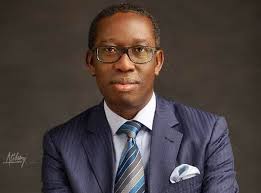DELIVERING QUALITY HEALTHCARE
46. Health is a right and quality healthcare delivery is a cardinal objective for government at all levels. This administration has remained passionate, deliberate and focused in its quest to formulate tangible and lasting policies and programmes for improving the health of all residents in the State. The overarching goal of my administration is to achieve Universal Health Coverage (UHC), by providing quality healthcare services that is readily accessible to all residents in the State irrespective of their status in the society and their residential location.
47. We are making steady progress in our implementation of the Universal Health Coverage being implemented and managed by the Delta State Contributory Health Commission. As at September 2019, the total number of the enrolees registered under the scheme was 657,436.
— equity plan: 499,158;
– formal plan enrolees: 150,170,
– informal Plan: 8,108.
48. To boost informal sector registration, the Commission has deployed Community Based Liaison Officers (CBLOs) and supervisors across the State. Their main function is to implement a “compound to compound” advocacy about the benefits of participation in a health insurance scheme, adoption of better health seeking behaviours, uptake of better living standards and upfront prioritization of expenditure for health through payment of premium for health insurance.
49. There will be family discounts for group premium payment, and payments can be done in convenient instalments. Wealthy individuals and philanthropists in the area will be encouraged and supported to make premium contribution(s) on behalf of the poor and vulnerable in the various communities. Efforts are also being made to leverage on the implementation of the Basic Healthcare Provision Fund (BHCPF) to enhance the Informal Sector registration through the integration of the Basic Healthcare Provision Fund and the Delta State Contributory Health Scheme.
50. Our administration has also made significant progress in the upgrading of public healthcare facilities spread across the State. Through the efforts of the State Primary Healthcare Development Agency, the Ministry of Health and other State Government agencies, 107 Primary Healthcare Facilities and 63 General Hospitals have been fully functionalised to meet up the basic requirements of the Federal Ministry of Health for the implementation of the Basic Healthcare Provision Fund.
51. Through the “Access to Finance” programme, a PPP initiative between the Delta State Government, Bank of Industry and the Pharmaccess Foundation, to revitalize and operationalize defunct healthcare facilities in rural communities, healthcare services and the benefits of the State health insurance scheme have been extended to remote communities in Delta State with significant benefits already being recorded.
52. What this means is that a total of 395 public primary and secondary healthcare facilities including private healthcare facilities were inspected and accredited to provide healthcare services under the Delta State Contributory Health Scheme. The Commission (DSCHC) is also implementing a governance framework, an organizational structure and an elaborate ICT enabled operations tool for the scheme.
53. With the several initiatives through Public Private Partnerships, this administration is addressing the problem of “Brain Drain” in Nigeria by turning it around to a “Brain Gain” towards Delta State. Private sector participation in the Delta State healthcare space is being supported and encouraged with favourable incentives and a ready pool of patients under the Delta State Contributory Health Scheme.
54. We intend to have doctors and other healthcare service professionals, consulting at the various primary healthcare centres in Delta state on full time or scheduled visiting status to boost quality healthcare services across the State. The Delta State University Teaching Hospital Oghara, and the Asaba Specialist Hospital are currently being renovated and upgraded for specialized healthcare services that will boost medical tourism in Delta State. Meanwhile, special intervention programmes for HIV care, TB management, birth control activities and mental healthcare services are being planned for incorporation into the State Health Insurance programme for sustainability.
55. Let me also acknowledge the invaluable contributions of the 05 Initiative to healthcare delivery in the State. Headed by the Wife of the Governor, the Non-Government Organisation has constructed and equipped 12 Sickle Cell Clinics in the State, including a world class referral centre in Asaba. These clinics will boost healthcare services and other necessary social support for people living with the Sickle Cell Disorder not just in Delta State but from all over the country.
56. The sum of N9.7 billion is proposed for the health sector in the 2020 fiscal year.
ENERGY
57. Mr. Speaker, the availability of reliable power supply is a critical input to production of goods and services in the economy. Availability of power supply can also contribute to the improved living conditions of all households, especially in the rural areas. In this regard, this Government has continued to invest in power generation and distribution in order to support economic growth, promote employment creation and improve the living standards of the citizens.
58. In our first tenure, we provided electricity to more towns and villages than the number we met on ground. We shall continue to improve the tempo in order to enhance power supply to reach more towns and villages in the State. The target of this administration is to keep intervening in the provision of electricity infrastructure in both the urban and rural communities of the State to ensure the well-being of our people and promote socio-economic activities. In the medium and long term, the Government will seek alternative means of providing steady and sustainable electricity power supply to all Deltans.
59. The sum of N3.6 billion is proposed for the energy sector in the 2020 fiscal year.




